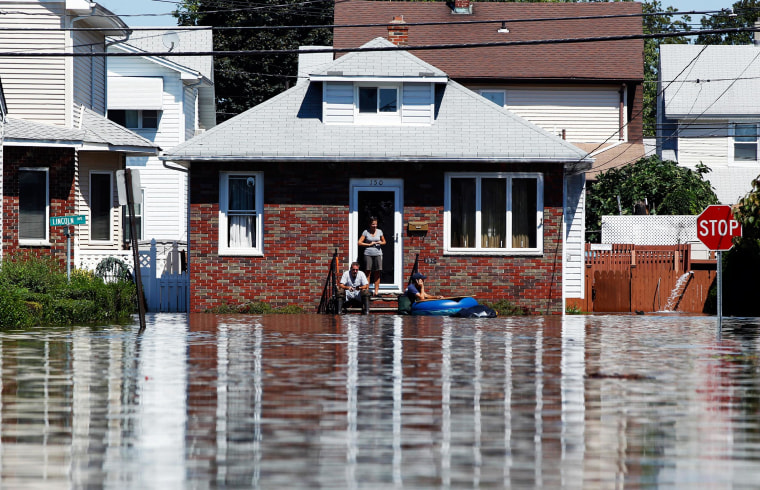Homeowners and businesses welcomed the Senate’s passage on Thursday of a bill designed to slow implementation of a 2012 law that would end federal insurance subsidies for people living in flood zones.
But critics blasted the effort as gutting reforms needed to help the government pay off a $24 billion debt from storm payouts.
The 2012 law — known as the Biggert-Waters Flood Insurance Reform Act — had mandated steep changes to the National Flood Insurance Program administered by FEMA: Ending of the “grandfathering” system in which homeowners could pass on their subsidized insurance rates to prospective buyers; and increasing those insurance premiums, up to a maximum of 25 percent a year, until they reached the actual market rate.
Nearly 5.5 million homes and businesses have flood insurance through the NFIP.
The new Senate bill, which now heads to the President Obama's desk since the House approved it last week, reinstated the grandfathering and decreased the annual hike in premiums to an average of 15 percent.
"This legislation protects homeowners who played by the rules..."
Michael Hecht of the Coalition for Sustainable Flood Insurance called the legislation a "milestone victory for hard-working Americans across the country."
“This legislation protects homeowners who played by the rules and keeps real estate markets alive while putting the NFIP on a more realistic path to solvency,” Hecht, CEO of Greater New Orleans, Inc., said in a statement.
Lawmakers passed Biggert-Waters in July 2012, hailing it at the time as building a road to solvency for the heavily-indebted flood program. Several hurricanes and storms, like Katrina, had led to the program’s growing financial woes, and legislators haggled over renewing it before settling on a plan to get it in the black.
But after Superstorm Sandy struck in in October 2012, homeowners recovering from the devastation realized that their insurance was set to go up, in some cases dramatically, because FEMA had been re-mapping the area – which revealed greater flood risk, triggering higher premiums. With that and the ending of the subsidies, some homeowners grappled with whether or not they should even return home.
But the impact wasn’t limited to Sandy victims. As FEMA did its re-mapping across the country, more coastal and even inland communities were experiencing the hikes, too.
“It’s not the best bill in the world, but it’s the best compromise we can get,” said George Kasimos, a homeowner in Toms River, N.J., who is facing an annual flood bill of $9,000 – up from $1,000 -- when his premium reaches the actual market rate. “We’re just not going to get to those exorbitant rates right away. It’s just going to delay foreclosure.”

The new legislation calls for the building of a “NFIP reserve fund” from subsidized policyholders by applying a $25 a year surcharge for primary homeowners and $250 for businesses and vacation homes until they reach the full market rate. The fund will be used to cover future NFIP obligations, lawmakers said.
According to the Congressional Budget Office, the bill wil have no net effect on the National Flood Insurance Program due to the fund offsetting the cancelling or slowing down of the premium increases.
But Steve Ellis, vice president of the Taxpayers for Commonsense, a nonpartisan budget watchdog, said the greater multi-billion dollar debt facing the government’s flood program remain and the bill would instead “accelerate the fiscal collapse” of it.
“That’s going to be a real albatross around the program’s neck,” he said of the debt. “Reducing rates doesn’t reduce risk.”
A nascent private flood insurance market had sprung up since the 2012 law offering competitive rates and the bundling of all kinds of homeowner insurance together. But Ellis said those efforts would be scuttled with a revert to the below-market premiums of the past.
“It’s not the best bill in the world, but it’s the best compromise we can get.”
“We’re going to be subsidizing people to be in harm’s way,” he said. “They gutted the heart of the reforms.”
However, realtors, who had warned about the potential impact of increasing premiums on the housing market, applauded the bill. The National Association of Realtors called it a “responsible and balanced solution to the skyrocketing flood insurance premiums.”
“We believe this legislation will bring relief to property owners by ensuring a slow and steady phase in of risk-based increases,” the organization said in a statement.
